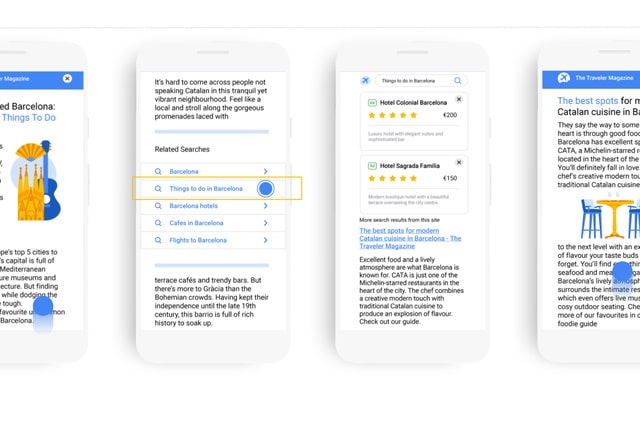Google introduces 'Related search for content' to add associated search terms to web pages

Google has announced a new contextual navigation unit called "Related search for content". It is an AdSense tool that can be used by website owners to show visitors search terms that are related to the content of the page they are currently viewing.
From a web user's point of view, the feature provides an easy way to find out more information about a topic without having to manually hunt things down. For site owners, it is a way to help keep visitors on the site for longer.
See also:
- Google explains how it is helping in Ukraine
- Oops! Microsoft didn't want you to know about adverts in Windows 11's File Explorer
- Save space on your Android phone by compressing apps rather than uninstalling
Google describes the new option as follows: "Related search for content lets you show your users search terms that are related to the content of the page they're viewing. When the user clicks a related search term, they're taken to a search results page on your site. Using related search on your content pages can encourage your users to explore relevant topics on your site and engage with search ads."
The company says:
Related search for content is a contextual navigation unit that shows users search terms related to the page they're viewing on a publisher’s website. When they click a search term, they're taken to a search results page on the publisher’s site where they can explore other relevant topics, including search ads. As a result, Related search for content can help publishers increase site engagement -- including site traffic, pageviews and ad impressions -- and drive incremental revenue.
Google says that the feature will enable publishers to create even more useful search experiences on their sites, stressing that it is a "privacy-preserving solution". The company goes on to explain that suggestions come from page content rather than user data, and points out that "ads on the search page target the search term the user clicked on, rather than actual user data".
More information is available on the Related search for content pages section of Google AdSense Help.
